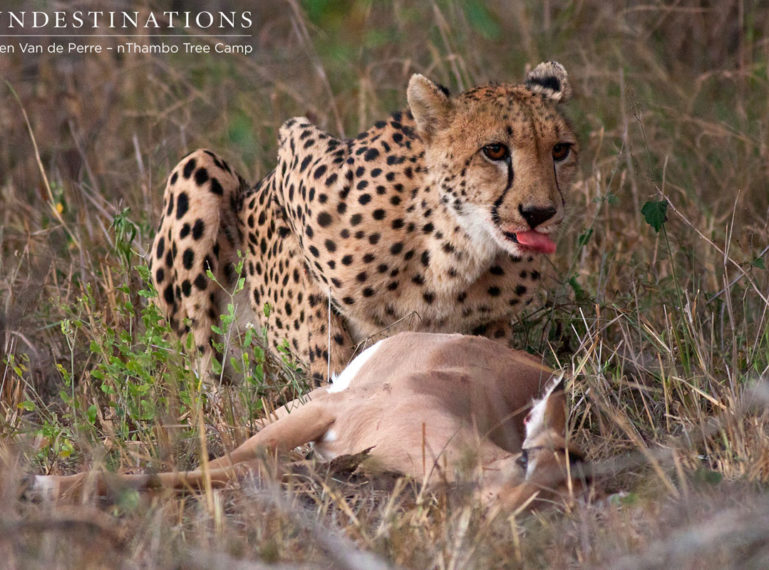
The sparse Kruger wilderness is a wild and unpredictable place where anything is possible. It’s a place where birth, death and violence merge to make up the circle of life in the animal kingdom. A place where emotions are neglected in the fight for survival, and a place in the food chain.
When we witness a highly charged life-changing moment while on safari it leaves an imprint forever etched on our hearts and minds. When these torrid or endearing moments happen right outside your room at camp, it makes you realise how insignificant we are and just how wonderful, yet cruel nature can be. On Sunday evening at nThambo Tree Camp in the Klaserie Private Nature Reserve, we witnessed a most remarkable and memorable wildlife moment.
In the early hours of the evening, while it was still light, a lone cheetah made a kill right ouside camp. An impala, small in size and stature, met its cruel fate that evening but left one of our graceful big cats sufficiently full and healthy. The images we took show that it was still quite light when the kill happened. Cheetah are diurnal hunters, which means they hunt while it is still light – they have poor eyesight. They opt for early mornings and evenings because the temperature is cooler and they cannot afford to spend excess energy hunting during the harsh heat of the midday sun. They reach speeds of up to 70km per hour and expend plenty of energy during a kill. Their big cat counterparts are nocturnal and hunt at night. Being a diurnal hunter also means they can eliminate competition for prey.
Look closely at the video and images, you will notice the light begin to fade. It’s clear that this kill happened as the temperature cooled down.
You will also notice there is only one cheetah on a kill. This is perfectly texbook behaviour. Cheetah are often seen singly or in pairs. They identify their target, stalk for a short period of time and then sprint for the kill. They remain stealthy and focused; and don’t need the darkness as camouflage to ambush prey. Their speed is their surprise attack.
What is quite unusual here is that this cheetah has killed an impala. Larger antelope are normally only killed when there are two cats hunting together. A lone cheetah will normally prey on smaller antelope like steenbok. However, if you look closely, you will notice that the impala is rather small.
When a cheetah has subdued and immobilized its prey, they may choose to begin the feast before the prey is dead. This is to reduce the chances of an opportunistic scavenger or large cat stealing the kill.
nThambo Tree Camp is an open camp which means animals are able to roam freely throughout. With wooden cabins raised on stilts, it’s quite a unique place to stay. Because the rooms are elevated, it makes for exceptional views of the surrounding landscape. Hyenas, jackals and other small mammals can often be heard scurrying around under the wooden cabins, making for interesting midnight noises. The grumbling of an elephant’s stomach can also be heard as it grazes on the trees adjacent to the rooms. nThambo is the ideal place to cocoon yourself while listening to the sounds of nature. With all the animal activity and reports of playful behaviour from the animal kingdom, we have yet to report on a cheetah kill happening in front of the rooms. Until Sunday. What an end of a fantastic week of sightings at camp!
Not even the Shangaan trackers with their innate sense of animal behaviour could predict the events that unfolded on Sunday evening. We cannot interefere nor argue with the food chain, but instead marvel at the highs and lows of emotionally charged moments. Let’s hope next week we witness a birth
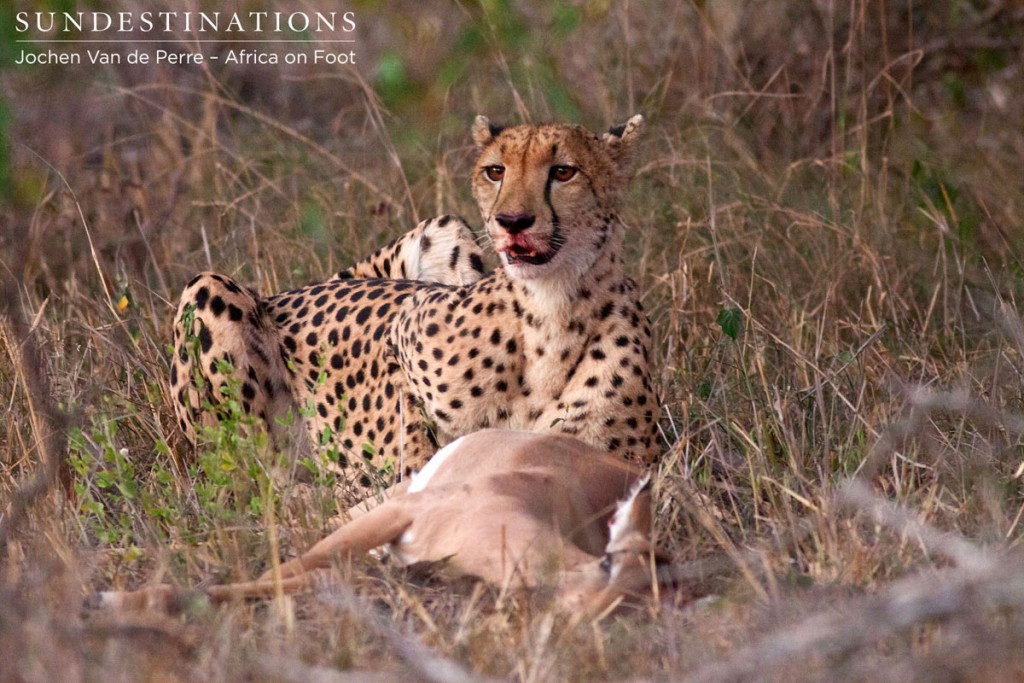
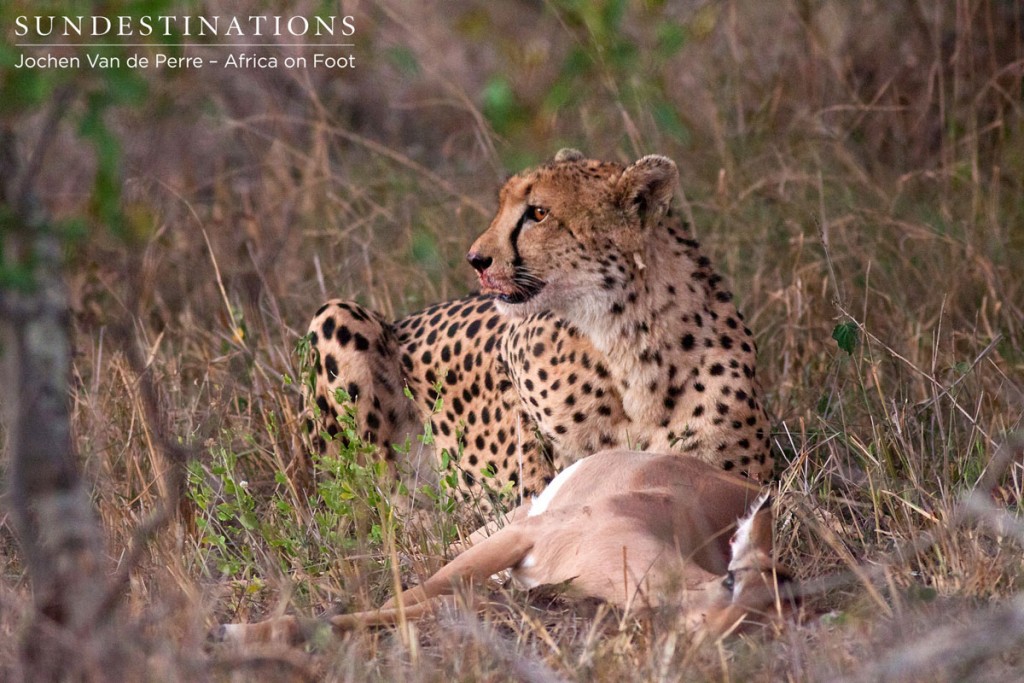
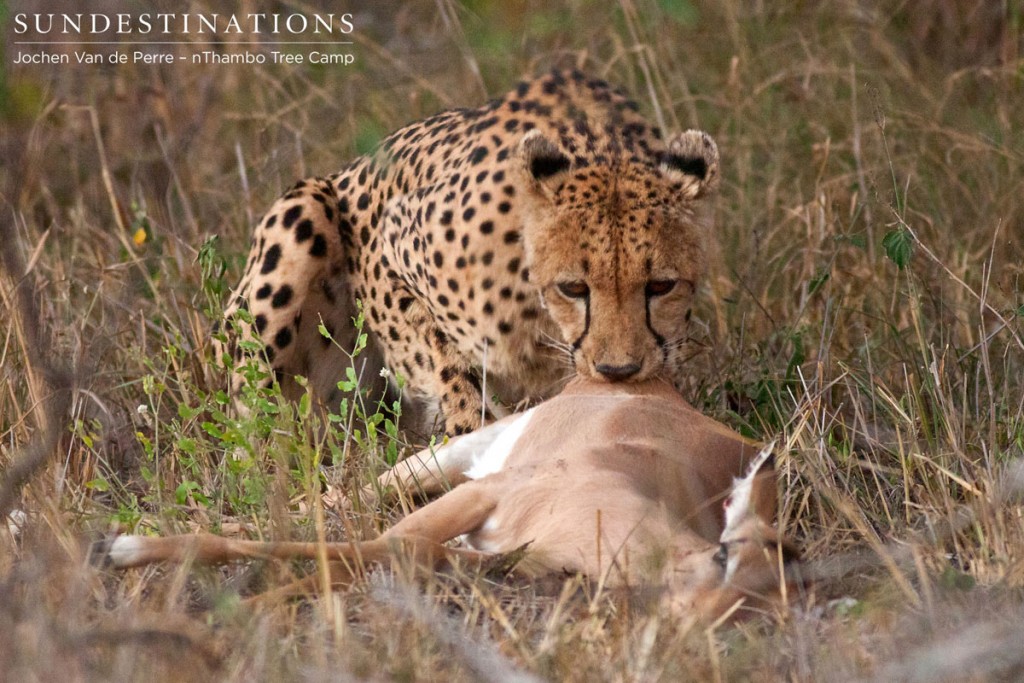
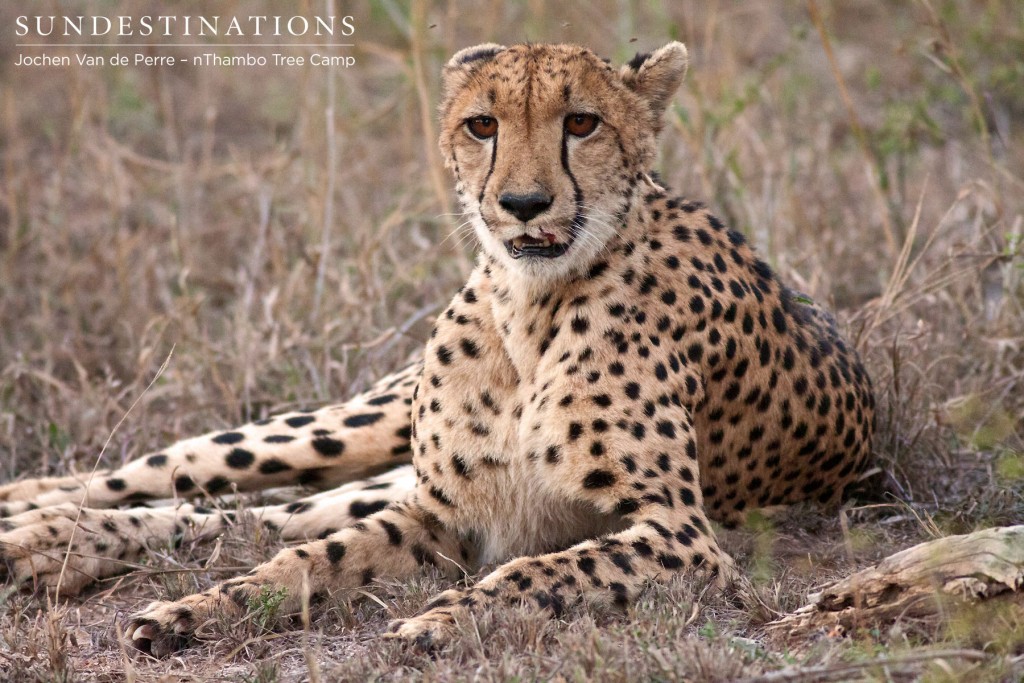
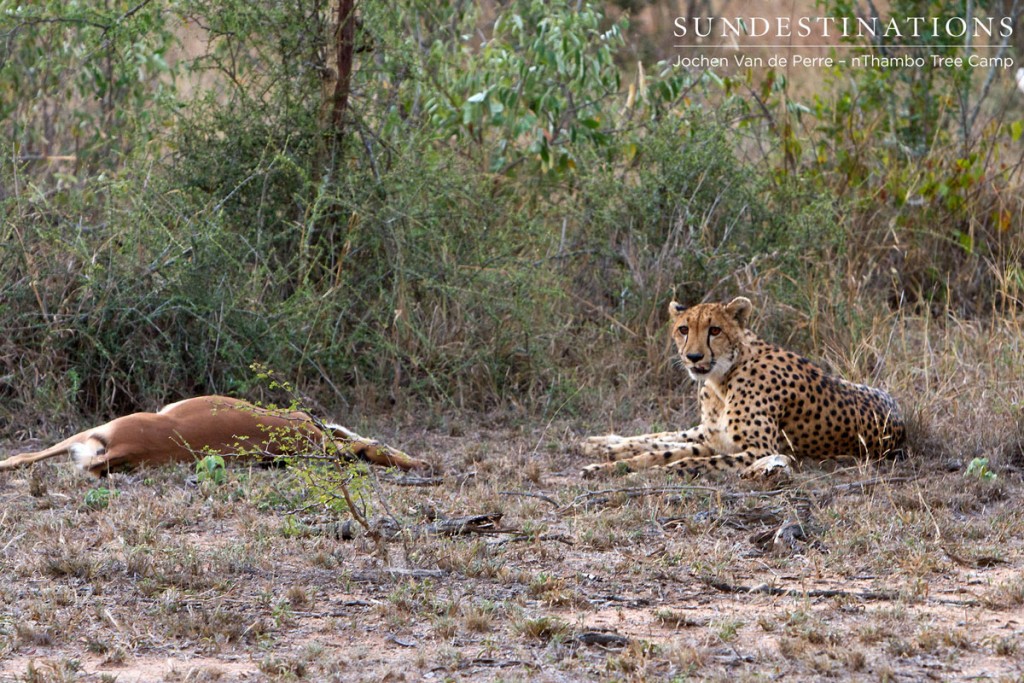
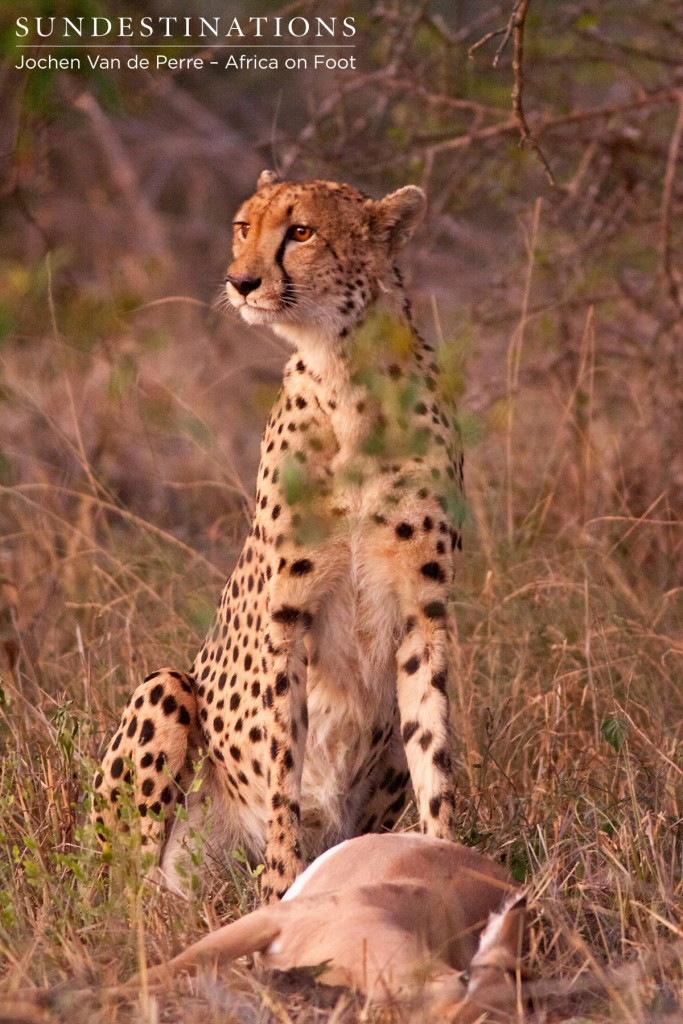
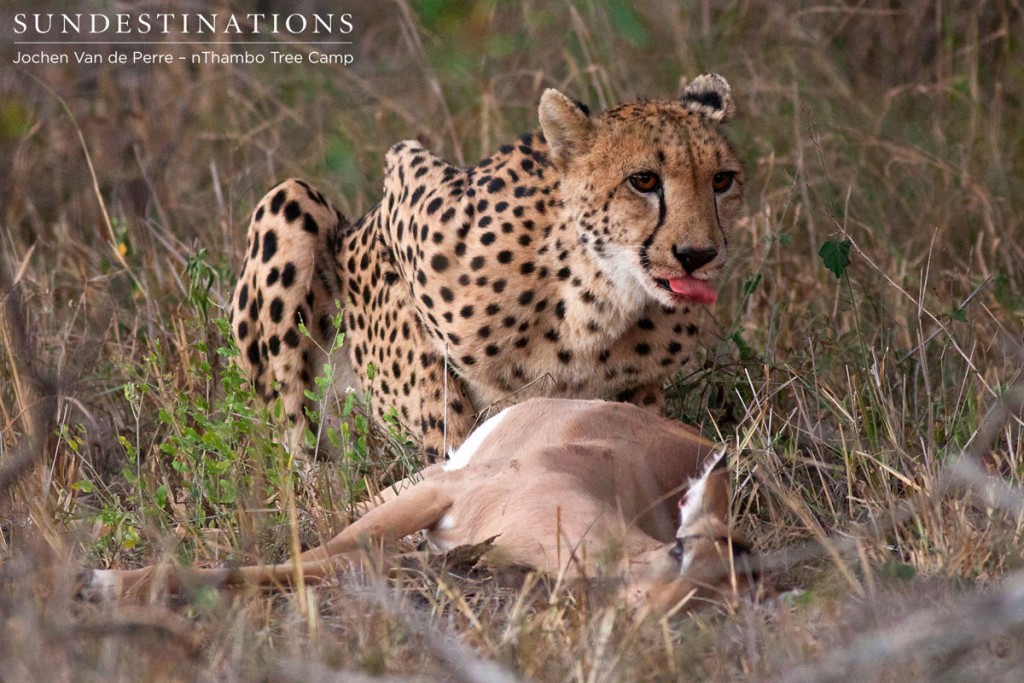
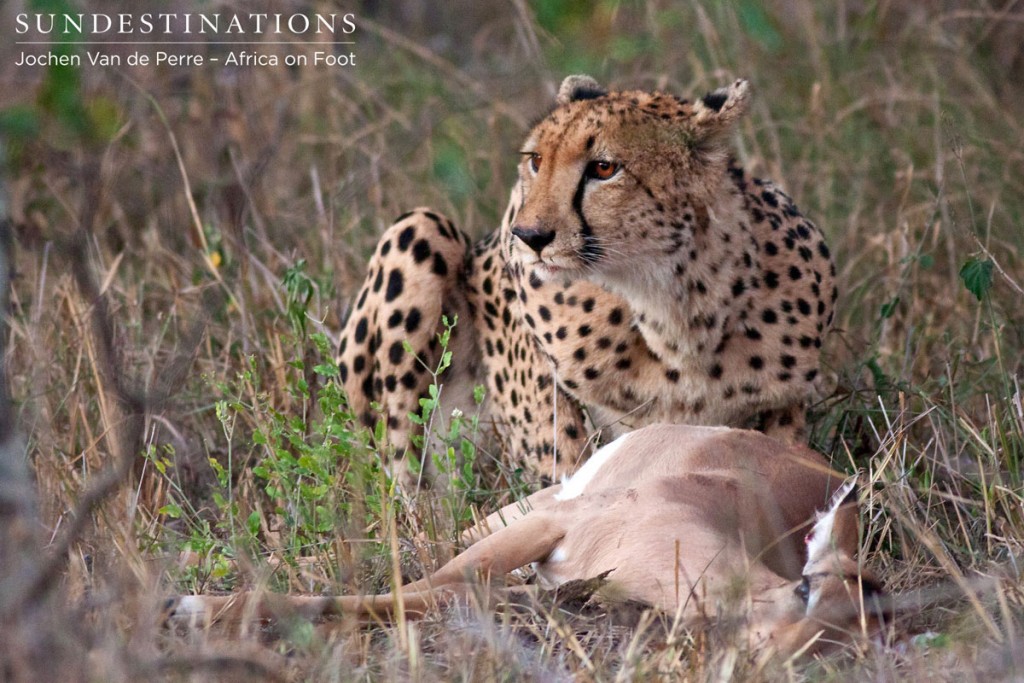
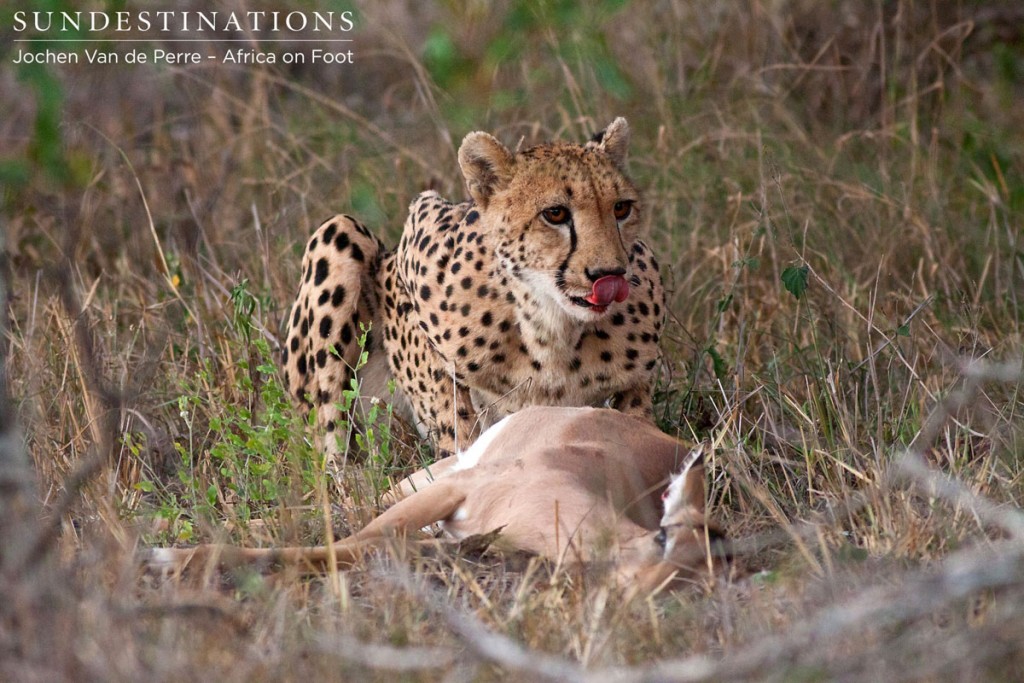
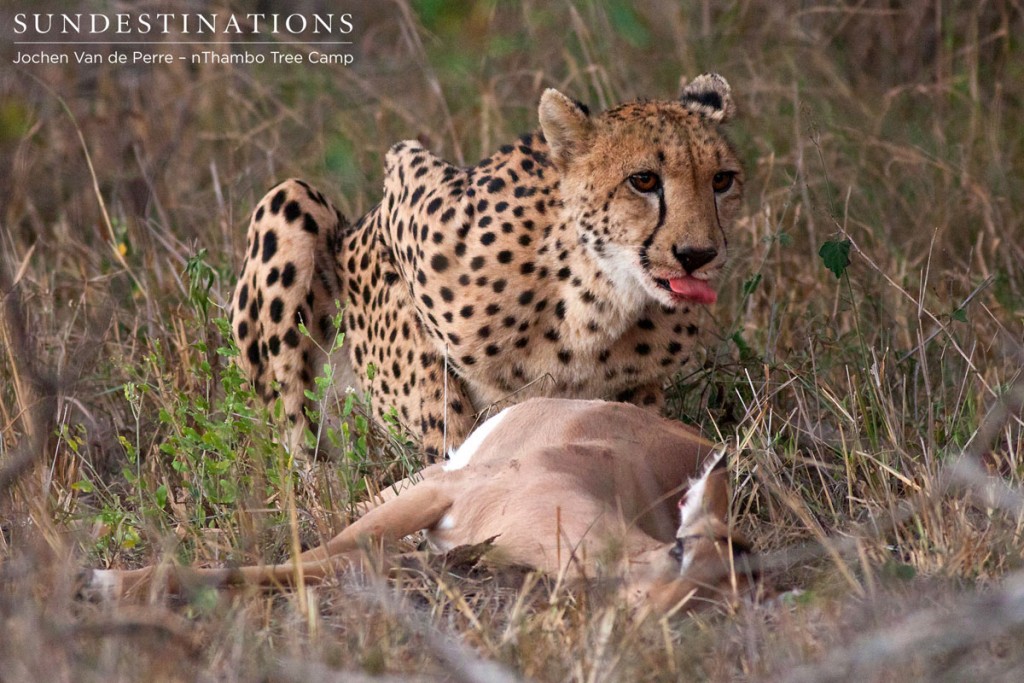
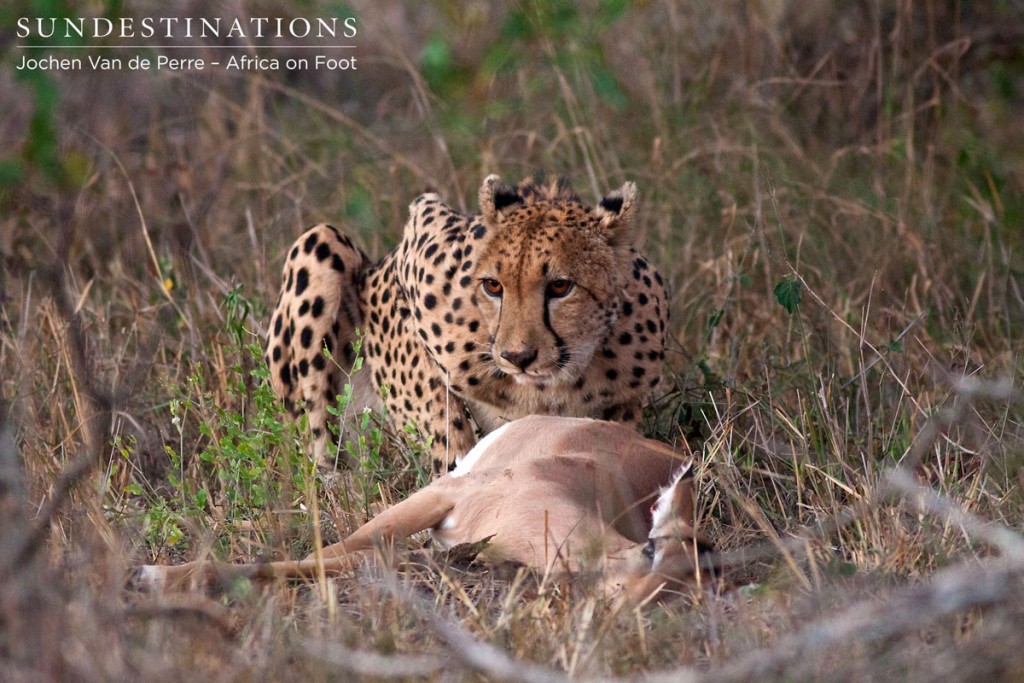
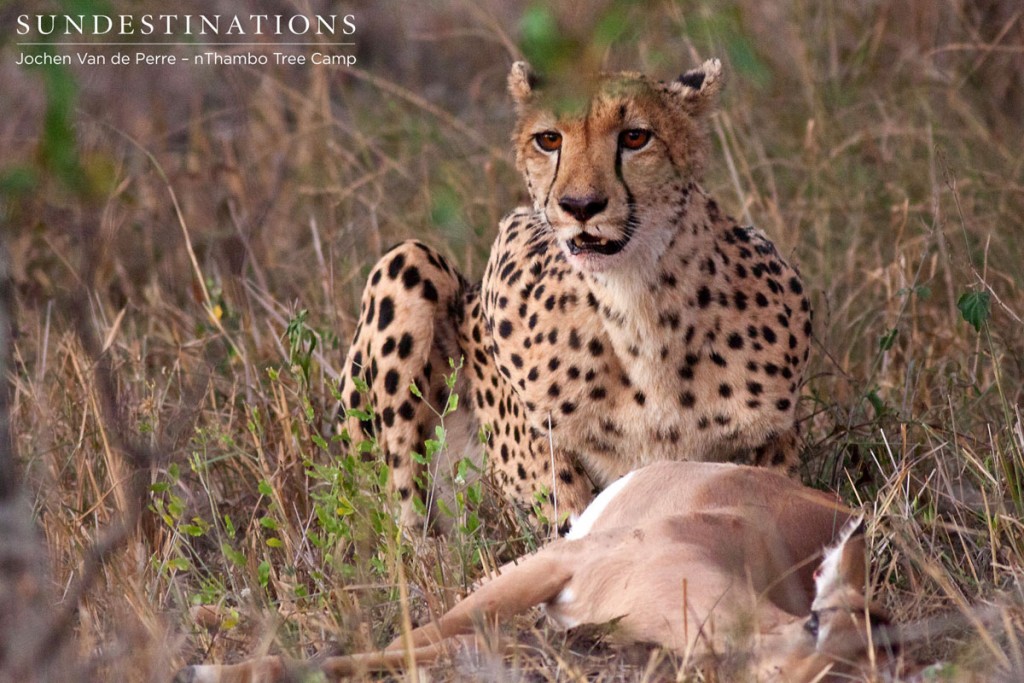
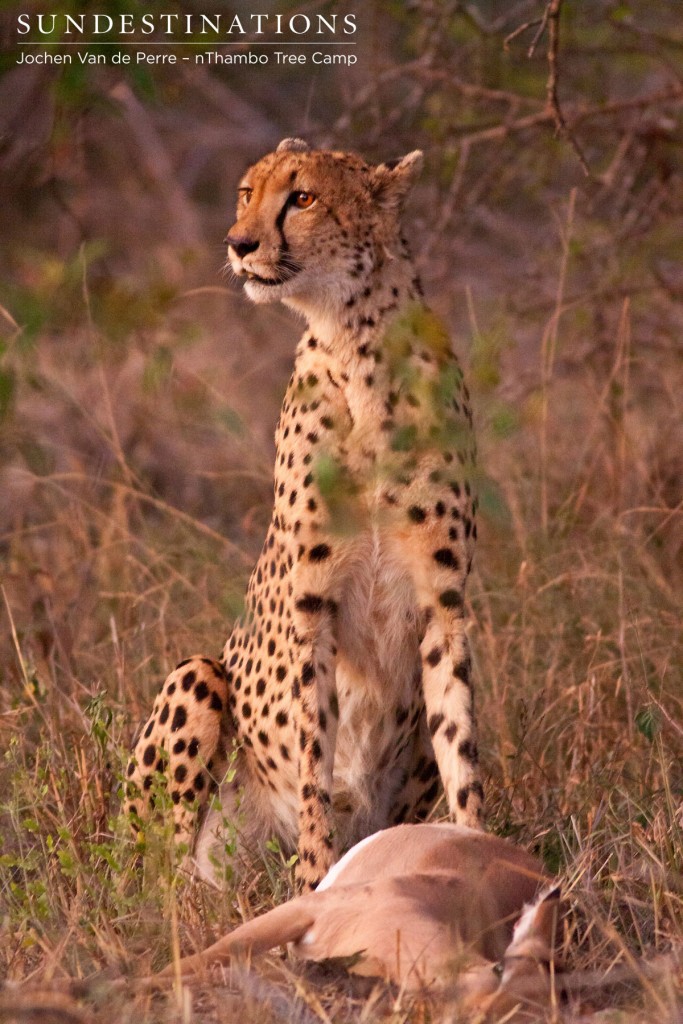
Leave a Comment